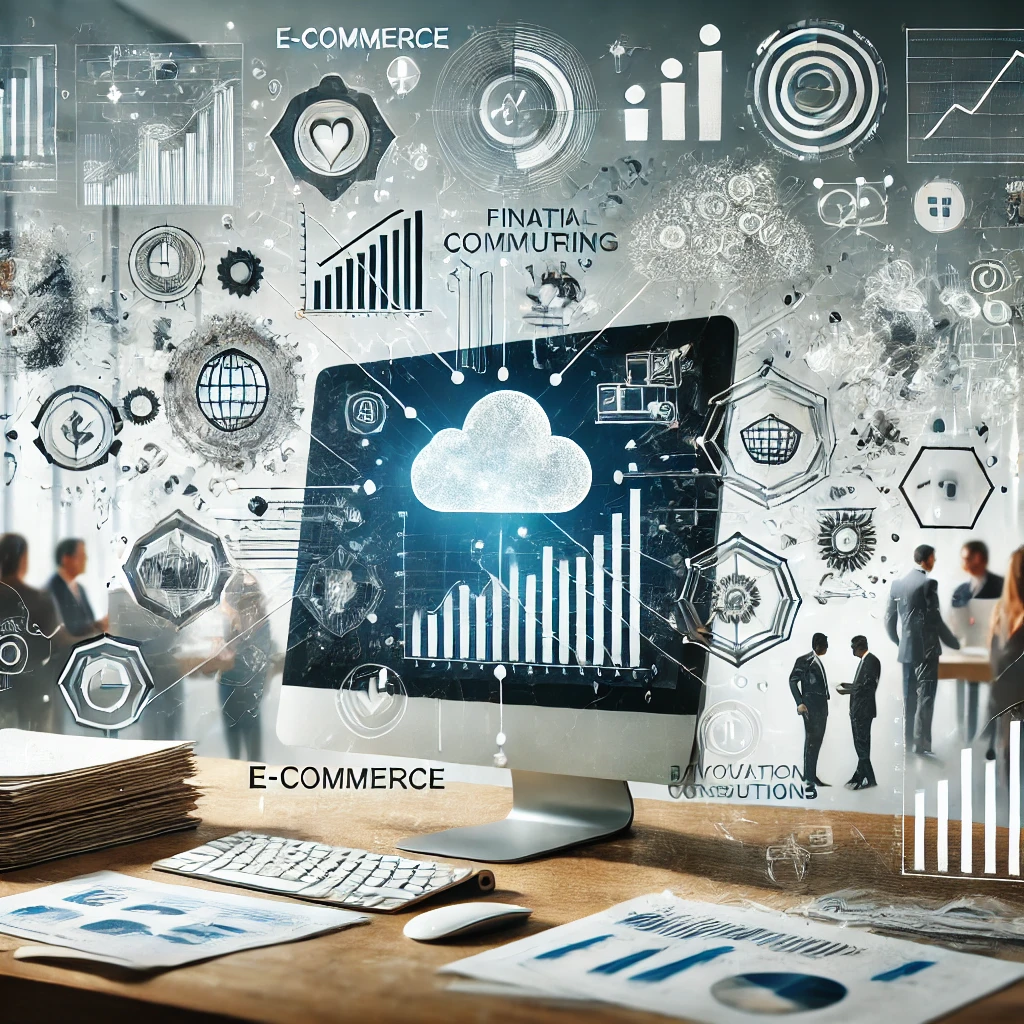
The integration of computers into commerce has significantly transformed the way businesses operate, creating a more efficient, productive, and globally connected economy. From financial transactions to data management and customer interactions, computers are indispensable in today’s commercial world. Here’s a look at how computers are shaping the future of commerce.
Computers have streamlined numerous business processes by automating repetitive and time-consuming tasks. Accounting software like QuickBooks and Tally simplify bookkeeping, manage invoices, and process payroll with minimal human intervention. Similarly, Enterprise Resource Planning (ERP) systems automate and integrate essential business operations such as inventory management, procurement, and human resources, improving efficiency and reducing errors.
The rise of e-commerce is perhaps the most obvious example of computers revolutionizing commerce. Online platforms such as Amazon, Flipkart, and Alibaba allow businesses to reach a global audience without the need for a physical storefront. Computers enable real-time inventory tracking, secure payment processing, and data-driven marketing, providing customers with personalized shopping experiences.
Digital Payment Systems: Secure, fast, and global transactions are now possible through digital payment systems like PayPal, Google Pay, and Stripe, powered by robust computer algorithms that ensure seamless and secure financial exchanges.
Computers allow businesses to store, manage, and analyze massive amounts of data with ease. This has led to the rise of Big Data in commerce, where businesses collect and analyze customer data to understand buying patterns, market trends, and consumer preferences. Tools like Google Analytics and Power BI provide insights that help businesses make data-driven decisions, enhancing efficiency and profitability.
Customer Relationship Management (CRM): CRM software such as Salesforce uses data to improve customer relationships by tracking interactions, managing customer feedback, and predicting customer needs. This leads to better customer service and increased sales.
Computers play a vital role in modern supply chain management (SCM) by optimizing everything from production to distribution. Companies use SCM software to track shipments, manage suppliers, and forecast demand, ensuring that products are delivered on time and inventory levels are optimized. Advanced systems integrate with AI and machine learning to predict disruptions and recommend alternate strategies.
Digital marketing has become central to commerce, and computers power all aspects of it. From social media marketing to email campaigns, companies use advanced algorithms to target specific demographics, track user behavior, and customize advertising content. Platforms like Facebook Ads, Google Ads, and Instagram have made it easier for businesses to reach potential customers based on their preferences and online activity.
The financial sector heavily relies on computers for secure transactions, online banking, and investment management. Computers process billions of transactions every day, ensuring accuracy, security, and speed. Stock trading platforms and cryptocurrency exchanges further demonstrate how commerce is now fully dependent on computational power for global financial operations.
Blockchain and Cryptocurrencies: Blockchain technology and cryptocurrencies, powered by computers, are introducing new methods of conducting commercial transactions, potentially disrupting traditional financial systems with decentralized, transparent, and secure alternatives.
Computers facilitate seamless communication across global teams through platforms like Zoom, Slack, and Microsoft Teams, which are vital for maintaining commercial operations in today’s digital world. Whether it’s coordinating supply chains or managing international marketing campaigns, businesses rely on computers to collaborate efficiently.
Computers have become the backbone of modern commerce, enhancing the way businesses operate by providing automation, data-driven decision-making, global connectivity, and secure transactions. As technology continues to evolve, innovations like artificial intelligence, blockchain, and cloud computing will further revolutionize commerce, driving it towards even more sophisticated, efficient, and customer-centric models.

Hi!
